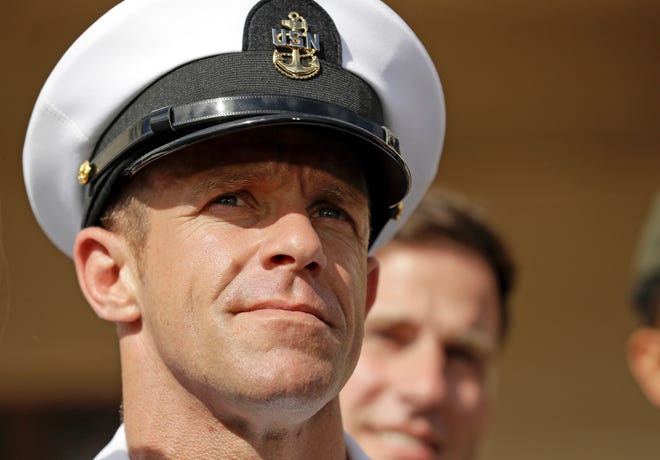Most Americans understand that, under military law, soldiers must disobey an illegal command. It’s a doctrine that demolished Nazi war criminals’ claims during the Nuremberg trials that they were just following orders.
But what happens if the order is legal, but it’s unethical or even immoral? What is a member of the military to do then?
For some top Pentagon officials, the question might be more than hypothetical. They apparently resisted President Donald Trump’s efforts to protect a Navy SEAL accused of misconduct, and in an interesting turn of events, it seems that by Sunday afternoon, Navy Secretary Richard V. Spencer, was out of a job.
How did the Spencer case get ignited?
This issue came to a head last week, when Trump threatened to issue an order many senior military leaders see as bordering on unethical. The order would have effectively undermined efforts by a Navy leader to restore good order and discipline among the vaunted Navy SEALs.
A key focus was the conduct of Navy SEAL Edward Gallagher, who had previously earned a reputation as a rule-breaking “pirate,” accused of committing war crimes in Iraq, including the indiscriminate firing into a neighborhood with a machine gun and killing a teenage captive with a custom-made knife.
When the criminal case against Gallagher fell apart at trial in July, he was convicted only of posing in a photograph with the dead teenager and demoted. Right-wing commentators flocked to Gallagher’s defense, and Trump ordered Gallagher’s rank restored Nov. 15.
This wasn’t the first time Trump pardoned an army officer
The same day, Trump dismissed a murder charge against a Green Beret accused of killing an Afghan prisoner and pardoned an Army officer serving time in prison for ordering troops to fire on unarmed Afghan men.
Pentagon leaders were appropriately appalled. “The president’s decision … diminishes American moral authority on the battlefield to our detriment internationally,” said retired four-star Adm. James Stavridis, former NATO supreme commander.
In Gallagher’s case, Rear Adm. Collin Green, the commander of the SEALs, pressed on. Worried about a “Gallagher effect” on troop culture, Green initiated steps to strip the sailor of his SEAL status by revoking the revered Trident pin earned when becoming a member of the unit. Equally undeterred, Trump tweeted Thursday that “the Navy will NOT be taking away Warfighter and Navy Seal Eddie Gallagher’s Trident Pin.”
Trump, who seems to equate war crimes with battlefield toughness, certainly has the authority to order such a thing as commander in chief of the military. But is it worthy of being obeyed? Analysts in military ethics have debated this for years.
Marine Corps officer Andrew Milburn wrote in a controversial 2010 essay that “faced with a moral dilemma, the military officer not only has grounds for dissent, but also, if his code of ethics and oath of office so guide, has a duty to disobey.” The only real option under such circumstances, Milburn wrote, would be to resign rather than carry out the order.
Source: usatoday.com




